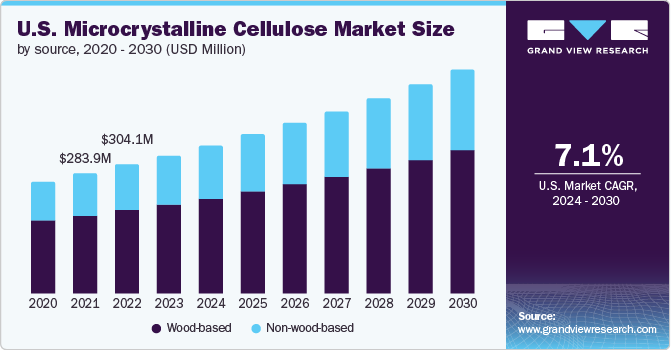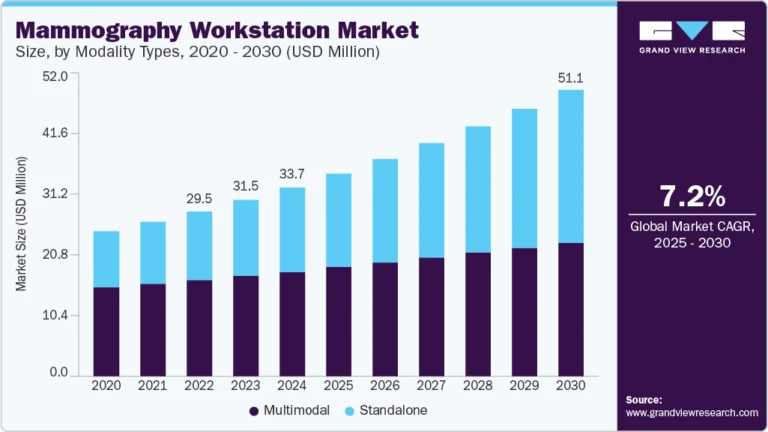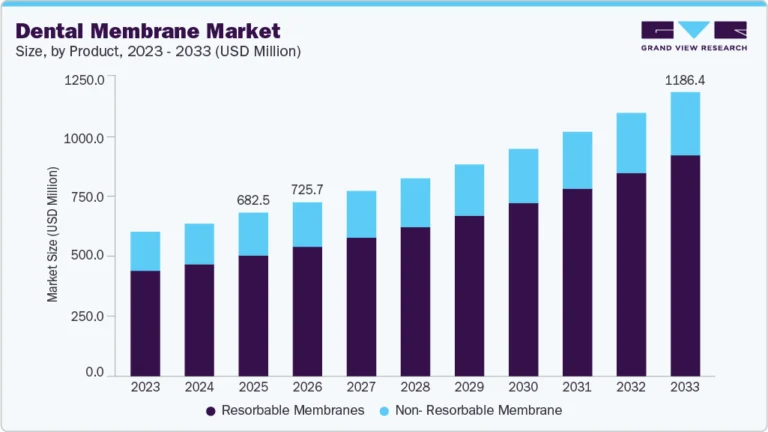Microcrystalline Cellulose Market Size, Share & Trends Analysis growing at a CAGR of 6.3% from 2024 to 2030

The global microcrystalline cellulose market size was estimated at USD 1,110.54 million in 2023 and is projected to reach USD 1,805.06 million by 2030, growing at a CAGR of 6.3% from 2024 to 2030. Microcrystalline cellulose (MCC) is commonly used as a binder, filler, and disintegrant in pharmaceutical tablets, as well as a bulking and anticaking agent in food products.
Key Market Trends & Insights
- North America microcrystalline cellulose market dominated the global industry with a share of 33.0% in 2023.
- The U.S. microcrystalline cellulose market will witness steady growth in the coming years.
- By source, the wood-based microcrystalline cellulose segment accounted for a share of 64.7% in 2023.
- On the basis of form, the powder segment dominated the market in 2023.
- By application, the pharmaceutical segment accounted for a share of 34.0% in 2023.
Market Size & Forecast
- 2023 Market Size: USD 1,110.54 Million
- 2030 Projected Market Size: USD 1,805.06 Million
- CAGR (2024-2030): 6.3%
- North America: Largest market in 2023
Request a free sample copy or view report summary: https://www.grandviewresearch.com/industry-analysis/microcrystalline-cellulose-market-report/request/rs1
In addition, its inert nature, high compressibility, and ability to improve the flow properties of powders make it a popular choice for various manufacturing processes. MCC is a refined wood pulp derived from cellulose, a natural polymer found in plants. It comprises small, loosely packed microcrystals with a high surface area. It is widely used in various industries, including food & beverages, pharmaceuticals, personal care, and more, due to its unique properties, such as low bulk density, excellent binding capability, and high compressibility. MCC is produced by undertaking numerous steps, such as pulping, purification, hydrolysis, depolymerization, washing & drying, sizing & shaping, and packaging.
MCC is widely used in the pharmaceutical industry as an excipient in tablet formulations. It is preferred for its inertness, compressibility, and disintegration properties, making it an essential component in manufacturing tablets and capsules. In addition, with the growing health consciousness among consumers globally, there’s an increasing demand for dietary supplements and functional foods. MCC is often used as a bulking or anti-caking agent in these products, contributing to its increased demand.
In personal care & cosmetics, MCC finds applications as a texture modifier, absorbent, and binding agent. With the growth of the cosmetics industry and consumer demand for high-quality personal care products, the demand for MCC in this sector is also on the rise. The product’s versatility makes it desirable among end-use industries.






